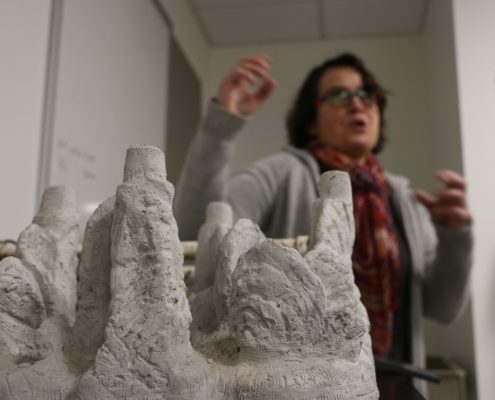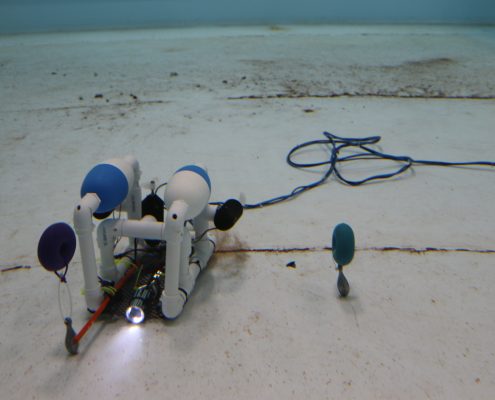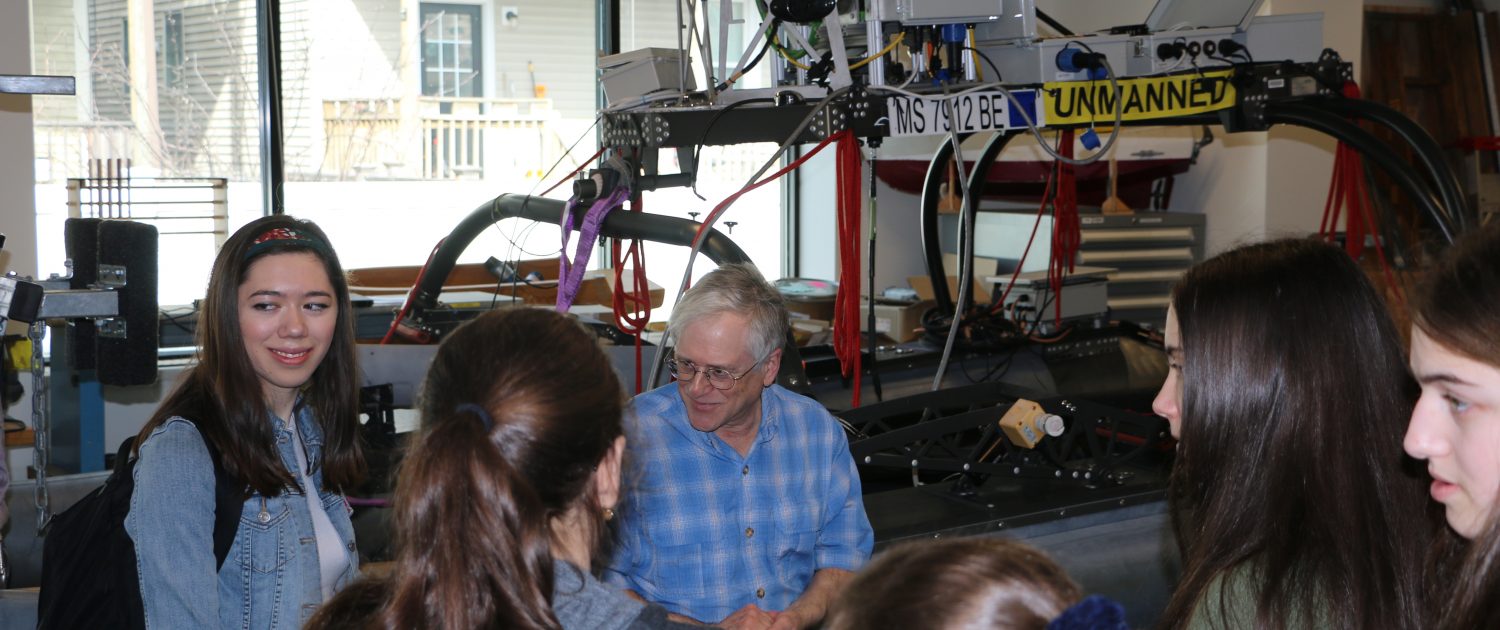Students from the Center for Initiatives in Jewish Education Visit MIT Sea Grant
MIT Sea Grant Research Scientist Carolina Bastidas engages a group of students pursuing science and engineering with her research on oyster rehabilitation.
On March 3, 2020, a group of 35 high school students – juniors and seniors pursuing science and engineering – visited MIT Sea Grant from the Center for Initiatives in Jewish Education. The non-profit organization, CIJE, has technical curriculum and blended STEAM learning in use in over 220 schools across the US. During the trip to Cambridge, the students also visited the MIT Media Lab, the Broad Institute of MIT and Harvard, and the Harvard John A. Paulson School of Engineering and Applied Sciences (SEAS) School.
The focus of the visit was on creating opportunities for the young students to connect with professionals in their fields of interest. MIT Sea Grant Coastal Ecologist Juliet Simpson presented on what it is she studies as a coastal ecologist – the effects of climate change on coastal habitats, the ecology and physiology of aquatic plants and algae, water quality regulation, and more.
 MIT Sea Grant Research Scientist Carolina Bastidas described her background as a marine scientist with over fifteen years of experience in basic and applied research on the ecology of marine hard-bottom communities and human impacts on them.
MIT Sea Grant Research Scientist Carolina Bastidas described her background as a marine scientist with over fifteen years of experience in basic and applied research on the ecology of marine hard-bottom communities and human impacts on them.
She also gave an in-depth look at her work with an oyster rehabilitation project with MIT Solve: Grow Oyster Reefs. The project, led by Evelyn Tickle, aims to grow oyster reefs to protect coastal communities and ecosystems. Bastidas is contributing by testing Calcium Carbonate (CaCO3) concrete, reef tiles, and reef disks, conducting research on their effectiveness as hospitable environments for oysters to grow and thrive. Across the US, 85 percent of reefs have broken down due to human interferences since the late 1800s. This is problematic, as oyster reefs naturally filter toxins from water and protect coastlines from storm and tidal surges.
 Students then had a chance to operate underwater robots in the Ocean Engineering and Education Lab. They also toured the AUV Lab and Biology Lab, exploring the work of MIT Sea Grant students, marine biologists, ecologists, and robotic engineers.
Students then had a chance to operate underwater robots in the Ocean Engineering and Education Lab. They also toured the AUV Lab and Biology Lab, exploring the work of MIT Sea Grant students, marine biologists, ecologists, and robotic engineers.






